Ex-Vice President Pence Calls On Biden To Show Strength Over Iran, Russia
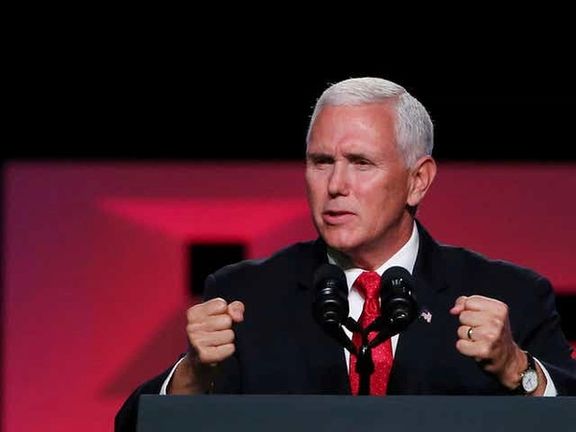
Former United States vice-President Mike Pence has linked criticism of the Biden administration over the Russian invasion of Ukraine to world powers’ nuclear talks with Iran.

Former United States vice-President Mike Pence has linked criticism of the Biden administration over the Russian invasion of Ukraine to world powers’ nuclear talks with Iran.
“it’s incomprehensible to the American people that we are negotiating with Iran to lift sanctions, presumably to buy more oil,” Pence told Fox News Friday. The former vice-President backed refusing Russian oil and gas, while suggesting the US facing rising prices should neither use reserves nor consider imports from Iran or Venezuela.
Pence denounced year-long negotiations, including Russia as one of five world powers, to revive the 2015 Iran nuclear deal, which the US left in 2018 with Pence as vice-president under Donald Trump. Pence said the talks emboldened Putin over Ukraine.
“It’s only with American strength and rallying our Western allies that we’ll be able to return peace to Ukraine,” Pence argued. He rejected “working with Russia to try and convince Iran to get back in the nuclear deal.”
Pence criticized Biden’s move to release 1 million barrels of oil a day over six months from reserves to decrease prices, suggesting there were options to raise production. “These are the kind of messages of weakness the American people aren’t having,” he said. “American strength is the antidote to this moment at home and abroad.”
He attacked Biden for sending a “delegation to Venezuela, to the dictator [President Nicolas] Maduro, to presumably begin to beg for more oil when we have vast reserves of oil in this country.”
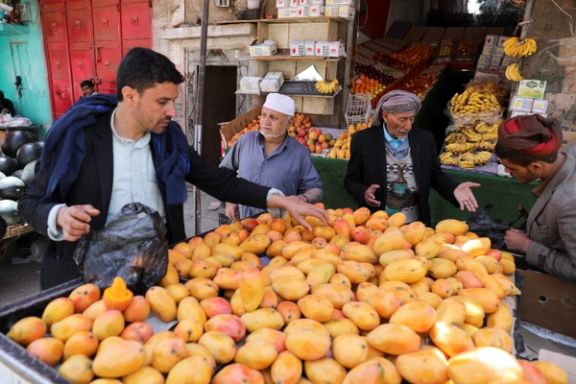
Iran has welcomed a two-month truce between Iran-backed Houthis of Yemen and a Saudi-led coalition fighting the rebel force for seven years.
Iran’s Foreign Ministry Spokesman Saeed Khatibzadeh in a statement Saturday expressed hope that the ceasefire could be "a prelude to the complete lifting of the siege on Yemen" and the "establishment of a permanent truce" which could help find a "political solution to the crisis", and lead to "complete exchange of prisoners" between the warring sides.
This is a major breakthrough as the warring sides in Yemen's conflict have agreed to a two-month nationwide truce. The Yemeni conflict is widely seen in the region as a proxy war between Saudi Arabia and Iran.
The United States and others have criticized Iran for supplying missiles, drones and other weapons to the Houthis as part of its drive for regional influence and attempts to weaken Saudi Arabia. At the same time Tehran is asking Washington to lift sanctions imposed on its Revolutionary Guard that is managing proxy forces in the Middle East.
It is reasonable to assume that without Tehran’s agreement the Houthis would not have accepted a ceasefire with Riyadh.
The truce will allow fuel ships to enter Hodeidah port controlled by Houthis and for scheduled commercial flights to operate from the airport in the capital Sana’a to other countries in the region. The parties have also agreed to discuss opening roads in Ta’izz and other Yemeni provinces.
UN special envoy Hans Grundberg said Friday that ceasefire would come into effectahead of the holy month of Ramadhan at 7:00 PM local time (1600 GMT) and could be renewed if the involved parties agreed.
"The aim of this Truce is to give Yemenis a necessary break from violence, relief from the humanitarian suffering and most importantly hope that an end to this conflict is possible," Grundberg said in a statement Friday, adding he would press for a permanent ceasefire.
UN Secretary-General Antonio Guterres has also expressed hope that the truce could be "a first step to ending Yemen's devastating war" and urged the Houthis, also known as Ansarullah, and the Saudi-led coalition to resume an "inclusive and comprehensive Yemeni political process."
Houthis said Wednesday halting military operations for the month of Ramadan, announced by the coalition, was “meaningless” if the siege against the rebels continued to be in full effect.
The coalition's ceasefire came only days after Houthis launched multiple drone and missile attack on Saudi oil giant Aramco's petroleum products distribution station in Jeddah on March 25, presumably as behind the scenes talks were taking place.
The United States, its Western allies, and others blame Iran-supllied drones and missiles for attacks by Houthis on Saudi and Emirati energy facilities.
In mid-March in response to possible Saudi-based Gulf Cooperation Council (GCC) plans to invite Yemeni parties including the Houthis for consultations in Riyadh, the Iran-backed Ansarullah said they welcomed talks only if the venue was a neutral country.
The coalition that includes Saudi Arabia's regional allies including the United Arab Emirates (UAE) has been at war against the Houthis since 2015 in support of the internationally recognized President Abdrabbuh Mansur Hadi. The Houthis ousted Hadi in late 2014 for what they said was corruption.
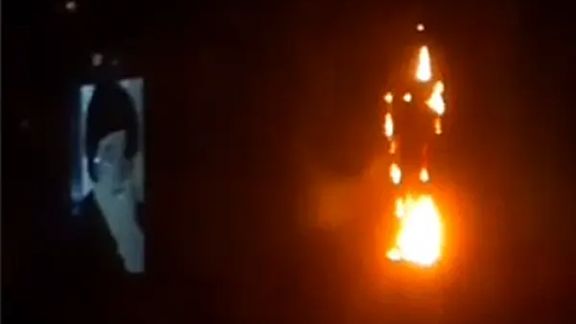
A senior cleric in Qom expressed anger over unknown people setting fire to a statue of the founder of the Islamic Republic, Ruhollah Khomeini in the city.
A video of a Khomeini’s statue in flames was circulated on social media in recent days, prompting Qom Friday Prayers leader Alireza Arafi to condemn the act and threaten those behind it.
He described it as "vicious" and said security officials would definitely follow up on this issue. He called it as part of a chain of conspiracies that are aimed at undermining the Islamic Republic.
Qom – along with Mashhad, is the most religious city in Iran, home to the largest Shiite seminary and many hardliner clerics.
As poverty is soaring in Iran and the regime keeps failing to deliver on its promises, such acts of political vandalism are growing across the country.
In February, another statue of Khomeini in the city of Ardestan in the province of Esfahan was destroyed, several days before a recorded message against Khomeini and Supreme Leader Ali Khamenei was broadcast on the public announcement system in Mashhad’s bazaar.
In January, a memorial statue of Qasem Soleimani, the commander of Iran’s Revolutionary Guard Qods Force, was set on fire in the central city of Shahrekord hours after it was erected.
According to a new online survey by a Netherlands-based institute, over 60 percent of Iranians want regime change or "transition from the Islamic Republic".
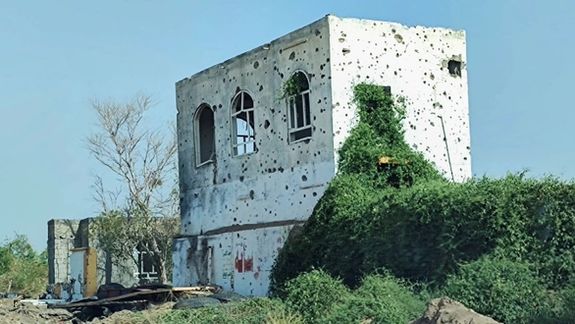
The warring sides in Yemen's seven-year conflict have for the first time in years agreed a two month nationwide truce.
The halt to hostilities would also allow fuel imports into Houthi-held areas and some flights operating from Sanaa airport, the UN envoy said on Friday.
The UN-brokered deal between a Saudi-led coalition and the Houthi group backed by Iran is the most significant step yet towards ending a conflict that has killed tens of thousands and pushed millions into hunger.
UN special envoy Hans Grundberg said the truce would come into effect on Saturday at 7 p local time (1600 GMT) and could be renewed with consent of the parties. Saturday marks the start of the Muslim holy month of Ramadan.
"The aim of this Truce is to give Yemenis a necessary break from violence, relief from the humanitarian suffering and most importantly hope that an end to this conflict is possible," Grundberg said in a statement, adding he would press for a permanent ceasefire.
Yemen's economy and basic services including health have collapsed, leaving 80% of the population of around 30 million reliant on aid.
UN Secretary-General Antonio Guterres said the truce "must be a first step to ending Yemen’s devastating war", urging the parties to build on the opportunity to "resume an inclusive and comprehensive Yemeni political process".
Houthi rebels launched a fierce drone and missile attack last week on Saudi oil installations, as behind the scenes talks were most probably taking place.
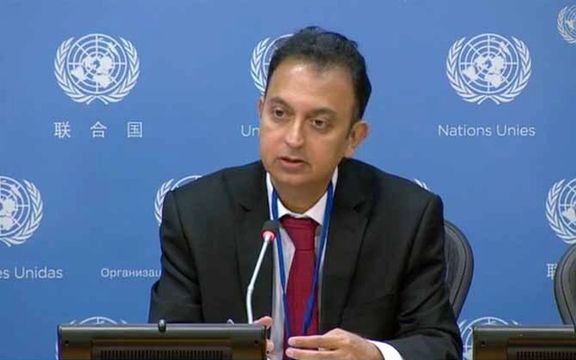
The United Nations Human Rights Council has extended the mandate of the Special Rapporteur of the Human Rights in Iran Javaid Rehman.
Member states voted to extend Rehman’s role for a further year at the 49th session of the Human Rights Council (HRC) Friday, along with similar mandates for North Korea and Myanmar.
The council requested Rehman, a law professor at London’s Brunel University, to submit a report to the UN General Assembly at its 77th session in September 2022, and to the HRC’s 52nd session in February-March 2023.
“The renewal of this mandate is essential in light of the persistence of a pattern of serious human rights violations and international crimes committed by Iranian authorities, as extensively documented by civil society monitors and by the Special Rapporteur,” read a letter to the HRC from Iranian and international human rights organizations.
Later on Friday, Foreign Ministry Spokesman Saeed Khatibzadeh rejected the UN resolution on the human rights situation in the country, saying it was drafted by Britain and other Western countries based on groundless claims and incorrect information and is “devoid of any legal validity”.
Rehman was appointed as the third rapporteur on Iran July 6, 2018, following Asma Jahangir and Ahmed Shaheed. The HRC had re-established the mandate of a rapporteur on Iran’s human rights situation in 2011 after terminated an earlier one in 2002.
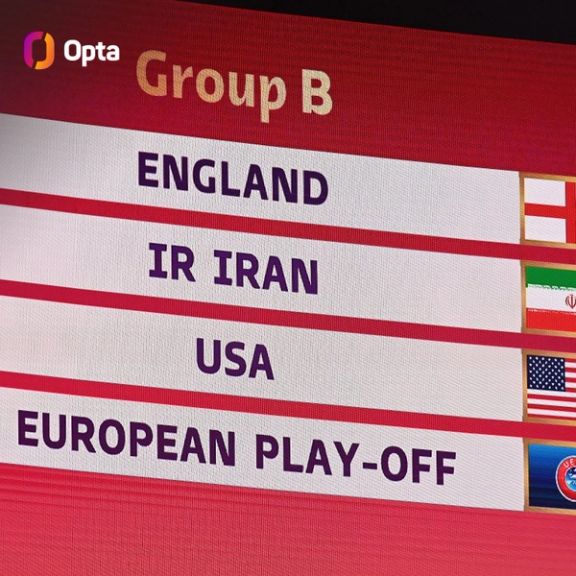
Iranian men’s national football (soccer) team has been drawn in Group B of Qatar FIFA World Cup along with the United States and England.
The drawing ceremony was held in Qatar on Friday, while Iran’s legendary goal scorer Ali Daei was also in attendance.
The fourth team of the group will be the winner of European playoffs that may be either Ukraine, Scotland or Wales.
The last time Iran and the US played against each other was the 1998 World Cup in France where the Iranian side beat the United States 2-1 with goals by Hamid Estili and Mehdi Mahdavikia.
According to the updated FIFA rankings, Group B is the ‘group of death’ -- the moniker that is used to describe a World Cup group that looks particularly challenging. Two teams will qualify to move up to the next round of matches.
This comes as FIFA has been urged by many people and organizations from Iran and other countries to ban Iran’s national football team from the 2022 World Cup for Iran’s recent action forcibly barring women from entering the stadium to watch a qualifying match.
A campaign on social media has seen hashtags such as #Fifabaniri (FIFA ban Islamic Republic of Iran) and others rising to the top of most-used hashtags in Persian-language Twitter.
On Tuesday, security forces denied women entry into a stadium in Mashhad, north-east Iran, to watch a FIFA World Cup qualifier between Iran and Lebanon, using pepper spray to disperse them.
A campaign inside Iran sees some former and current members of Iran's national team pledging not to enter stadiums as long as women are not allowed.